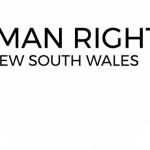Protecting Civil Liberties: An Interview With NSWCCL President Stephen Blanks

At the October 5 Council of Australian Governments meeting, state and territory leaders agreed that a new federal law should be established that would allow terror suspects to be detained for up to 14 days without any charges being brought against them.
In relation to the proposed law, along with a series of other counterterrorism measures, NSW premier Gladys Berejiklian remarked on the day prior to the meeting that in supporting public safety “sometimes it means all of us have to give up a little bit of our civil liberties.”
The premier’s attitude is hardly a surprise. NSW police have had the power to detain people without charge for up to 14 days since 2002. Indeed, on that very same day, Ms Berejiklian also announced that her government was planning to introduce the “nation’s toughest terror laws.”
An erosion of freedoms
On November 22, NSW state parliament passed legislation that allows an offender’s prison sentence, or period of supervision, to be extended for up to three years if it’s suspected they pose a “risk of committing a future serious terrorism offence.”
And the reach of the laws is so broad that they can apply to an offender who merely associates with someone involved in terrorism.
However, this future crime law is only the latest in a series of measures that the Coalition government has enacted over recent years, in the name of counterterrorism and organised crime that continue to whittle away at the civil liberties of NSW citizens.
Mounting control
The NSW consorting laws were enacted in 2012. These allow police to prevent an individual – regardless of whether they have a criminal record – from associating or even communicating with a person who’s previously been convicted of a crime.
Since May last year, senior police can issue public safety orders without court oversight, banning an individual from a place or event for up to 72 hours a week. While courts can issue directives restricting several aspects of a person’s life without proof they’ve even committed a crime.
A civil liberties watchdog
During this assault on basic freedoms, the NSW Council for Civil Liberties (NSWCCL) has been a vocal opponent of these infringements. Established in 1963, the council has championed many causes, including freedom of speech issues, the rights of asylum seekers and marriage equality.
Stephen Blanks has been the president of the NSWCCL since October 2013. Mr Blanks has been a constant voice in the media calling out encroachments on civil liberties, and drawing attention to the need for an Australian bill of rights that would protect Australians’ rights under the law.
Sydney Criminal Lawyers® spoke to Stephen Blanks about the threats the counterterrorism laws pose, the need for all rights to be protected equally under the law, and the role that the NSWCCL has played throughout the decades.
Firstly, Mr Blanks, on Monday it was announced that the NSW police riot squad is being armed with semi-automatic rifles. What do you think about police officers being issued with these military-style weapons?
The problem is that the riot squad is called out to police political protests and demonstrations. And it sends a very confusing message to the public, when the police who are there to keep the peace at demonstrations and protests are the ones who are being armed with these kinds of weapons.
It would be much better if the riot squad was taken out of having the responsibility of policing demonstrations.
Otherwise, it is understood that the police need to have access to appropriate weaponry, and criticisms of the police in this regard were made by the coroner in the Lindt Cafe siege report.
So, as long as police who are using these kinds of weapons have proper training, and there is proper accountability for their use, and the potential for their use is limited to a very narrow kind of range of events, then I think the public can understand why the police should have these kinds of weapons.
NSW state parliament recently passed legislation allowing for a three year extension of an offender’s prison sentence, or their supervision, if it’s thought they could commit a future terrorism offence.
What are the implications of passing a future crime bill like this?
These laws are reprehensible. And they should not have been passed. There is no real need for them. And they are simply contrary to the fundamental principles of a free society operating under rule of law.
Rule of law requires that when people have served their time for a crime that they’ve committed, they are then released into the community. A free society does not lock up people, or restrict people, for something which they may do in the future.
The evidence which is used in cases of this kind is inherently unreliable. And these kind of laws set a very dangerous precedent.
But, this latest piece of legislation is the last in a long line of laws passed recently that infringe upon citizens’ civil liberties.
How would you describe what the state government has been doing in regard to eroding people’s basic freedoms?
The experience has been a bit like boiling a frog, that is, incrementally fundamental aspects of our free society have been chipped away by wave after wave of counterterrorism legislation.
We’re at the point now, where it is really questionable as to whether we have preserved enough freedom to be called a truly free society.
These powers are not used, or are used on extremely rare occasions, but they sit on the statute books and represent a danger for society, because of their capacity to be misused in the future.
The Marriage Equality Bill recently passed through federal parliament with no amendments.
But, as there were politicians concerned that religious freedoms were under threat, the prime minister set up an expert panel to inquire into whether the right to religious freedom is protected under Australian law.
Do you think there’s a danger certain parties could start pushing for the enactment of religious exemption laws?
Well, one can always have a debate about protection of human rights and freedoms, and the best way to do it.
There are several different kinds of proposals, which could be considered by the committee, ranging from the implementation of the International Covenant on Civil and Political Rights, protection of religious freedoms, through to proposals which would be plainly inconsistent with international human rights standards.
It is an opportunity to talk about why human rights ought to be better protected in our legal system. But, not just by singling out one right out of context of all the other rights. They need to be protected as a whole, because they do compete against each other on occasions.
And there does need to be appropriate mechanisms for balancing competing rights.
The Senate rejected changes the Turnbull government proposed to the Racial Discrimination Act. Certain politicians wanted to change section 18C so it no longer made it unlawful to insult, offend or humiliate an individual on the basis of their race.
They argued this provision impinges upon their freedom of speech. How would you respond to their claim?
I don’t think it is reasonably arguable that marriage equality represents a limitation on freedom of speech, or that section 18C represents an improper intrusion on freedom of speech.
Freedom of speech is a fundamentally important human right. But, like all human rights, it’s not absolute.
When it is inconsistent with other important human rights, such as the right to dignity and the right to religious freedom, it’s understood that there are limits on the proper scope for free speech.
As you were saying, all rights need to be protected. You’re an advocate for the establishment of a national bill of rights in Australia. Can you explain what benefits such a bill would provide?
A national bill of rights should provide every individual in Australia with the means of having their human rights recognised and enforced.
Under the current system, all people can do is make a complaint to the Australian Human Rights Commission. And the commission has a very limited ability to do anything if a breach of human rights has occurred.
We need a more robust legal system, which protects individuals, and also limits the power of parliament to pass laws, which improperly infringe human rights standards.
So, some of these laws that have been passed in the name of counterterrorism may not have made it through parliament if we did have a bill of rights in place?
Certainly, the laws that Australian parliaments have passed would not have been possible in other countries where there are better human rights protections.
Laws that limit people’s freedom of movement on the say so of police and security agencies without proper court oversight are an example.
The debate over a bill of rights has been going on for decades now. However, successive governments have been reluctant to support such a move.
What’s behind this reluctance of government?
Politicians recognise that a bill of rights limits their power to make laws.
Many politicians in their own interest want to have the ability to appeal to certain sections of the community by denigrating other sections of the community in a way that wouldn’t be permissible if a proper human rights regime were in place. That’s a very powerful reason.
The media are quite opposed to at least some of the human rights that would be protected, such as the right to privacy. So, with a hostile media it is very difficult for the public to demand proper protection be recognised.
The NSW Council for Civil Liberties was established in 1963. How would you describe the role the council has played in the community since that time?
Over the 54 years that the NSW Council for Civil Liberties has been in existence, it has had an important role in exposing improper police behaviour, unfair laws concerning immigration, censorship, other free speech issues, and many other important areas.
It is a voluntary organisation, but it has played an important role in our society. And it’s going to be necessary for many decades into the future to keep highlighting breaches of civil liberties and human rights when they occur.
And lastly, you’ve been involved with the council since 1993. Would you say the campaign to protect civil liberties ever hits a bright batch, or is it an ongoing struggle that never ceases?
The campaign for civil liberties and human rights is an ongoing campaign that never ceases. But, there are occasionally bright spots.
This year, the marriage equality recognition was an important success on an issue that the Council for Civil Liberties has been campaigning on for more than 20 years. And every now and again, there are successes.
In the last week or two, the Australian government ratified the Optional Protocol to the Convention against Torture. That will enable United Nations personnel to inspect our prison systems and detention centres, including youth and immigration detention centres onshore.
That is an important advance, and again, something which the Council for Civil Liberties has been campaigning on for many years.
Mr Blanks, thanks very much for taking the time out to have this chat with us today.
It’s a pleasure.







